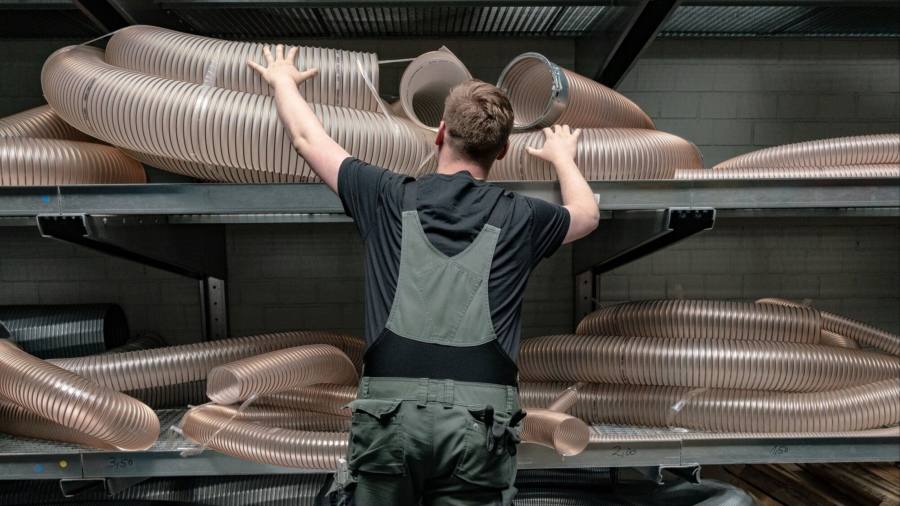Recent data out of Germany paints a bleak near-term picture for Europe’s economic powerhouse. Its economy entered a recession this year, and investor sentiment in the country recently fell at the fastest pace since the pandemic. The OECD now expects its growth to be the lowest among major economies in 2023. Its trajectory beyond this year is, however, a greater concern. Prevailing geopolitical headwinds — from Russia’s invasion of Ukraine to rising US-China tensions — have highlighted vulnerabilities in Germany’s international economic model and underscored its longer-term challenges.
German chancellor Olaf Scholz has been ambitious in trying to reorient the economy — including by reducing Germany’s dependence on Russian energy and in securing new supply chains for industry. The government has been moving quickly. An aim to have renewables account for 80 per cent of its power mix has raised Germany’s attractiveness as a destination for green investment. Billions are being spent to boost its semiconductor industry. The economy has also shown resilience by confounding dire forecasts for a deep recession this year. But the scale of the task ahead remains enormous.
Germany has quickly cut its reliance on Russian gas. The rapid building of LNG terminals has helped to boost energy security. But the decision to phase out its last nuclear reactors in April and the slow rollout of renewables means Germany is still reliant on imports and fossil fuels for its energy needs and remains exposed to volatile global prices.
Diversifying the economy is challenging too. Manufacturing accounts for about a quarter of its output. Automotive production, its prized industry, has been declining since 2018. Germany’s specialism in combustion technologies is being challenged by the shift to electric vehicles, where China is a dominant player. De-risking ties with China — its largest trading partner for goods — will not be straightforward either, as many companies consider it a vital market and supplier of intermediate products.
Scholz has called for a new “German speed” to achieve its transformation. But he will need to remove a number of speed bumps that have long held back the German economy first. Renewable infrastructure projects, such as wind farms, have been delayed by lengthy planning procedures. Reforms are in motion. Business leaders complain that hefty bureaucracy, high energy costs and limited digitalisation also hinder dynamism; since SAP was founded more than 50 years ago, no world-class German tech company has emerged.
Labour shortages are another impediment. Germany is expected to be short of up to 7mn workers by 2035, partly due to an ageing population. There is a lack of skilled workers in the building trade, electrical engineering and professional services, which are important for the country’s economic ambitions. Changes to immigration rules are in the works. Reforming the economy will also need further public investment and incentives, but demands on finances will be strained by older demographics and a commitment to raise defence spending. Spats among the coalition government have not helped either.
In some senses, Germany is a victim of its own success. Its economic model thrived in the era of rapid globalisation that took place in the two decades following the fall of the Berlin Wall. But times are changing, and the basis of its past competitiveness and resilience is being challenged. Long-term economic sores around regulation, digitalisation and labour supply that seemed less pressing when times were good are now restricting its agility. Only by dealing with these underlying barriers to growth can Germany renew itself once again.
Read the full article here




